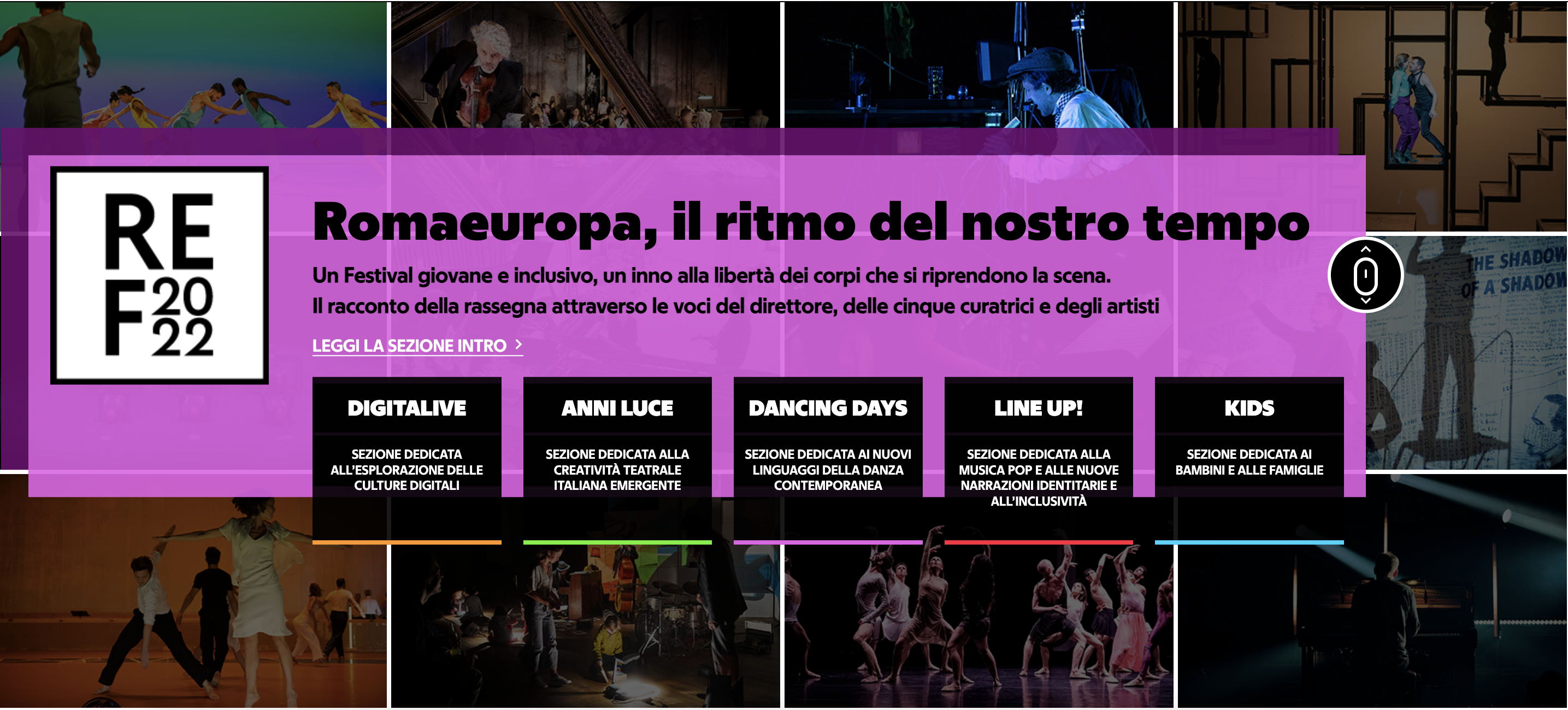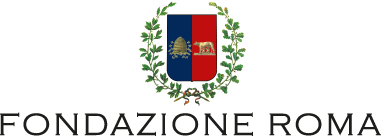ITA/ENG
LŌĆÖautunno romano ├© bollente quasi come lŌĆÖestate appena terminata.
E cos├¼ il clima della nuova settimana del REF si scalda con ŌĆ£l’evento culturale di punta dell’autunnoŌĆØ come lo ha definito Il Venerd├¼ ŌĆō La Repubblica.
Parliamo ovviamente dellŌĆÖarrivo nella capitale della compagnia del Berliner Ensemble, che con il regista Barrie Kosky, dallŌĆÖ11 al 15 ottobre (con pausa il 13) presenter├Ā al Teatro Argentina un nuovo allestimento dellŌĆÖOpera da Tre Soldi. Ma prima di addentrarci nella descrizione di questo mastodontico progetto – che in questi giorni ha visto il nostro staff tecnico impegnato in un vero e proprio tour de force – e per comprendere meglio lo spirito dello spettacolo, scorriamo verso la fine della settimana rintracciando un dialogo costante con i compositori e le musiche che hanno segnato e rivoluzionato il Novecento.
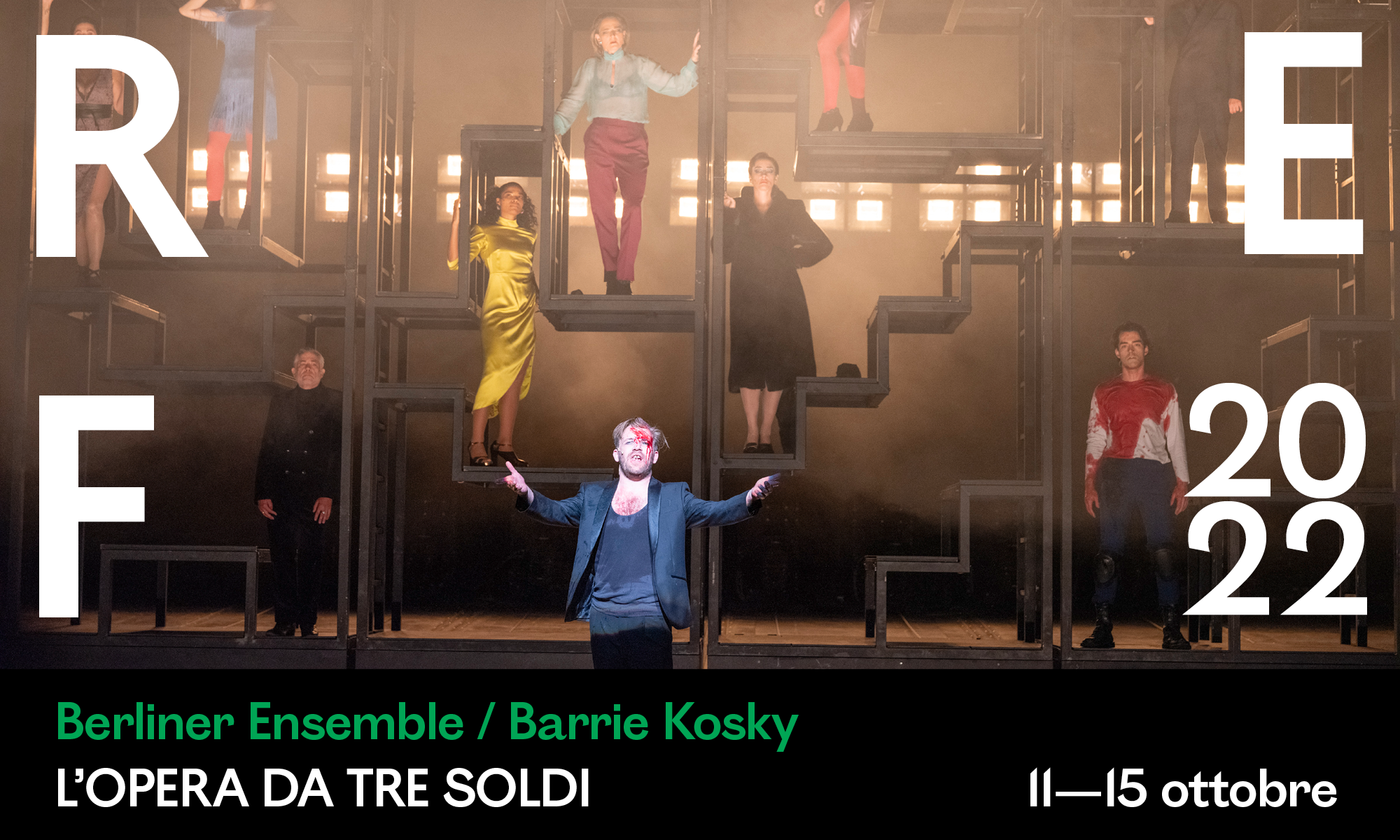
Dal 14 al 16 ottobre il Mattatoio si riaccende con REF Kids & Families – la sezione del festival dedicata ai bambini e alle loro famiglie (dai sei anni in su) – con la compagnia fiamminga Zonzo Compagnie pronta ad omaggiare uno dei pi├╣ influenti pianisti di tutti i tempi Thelonious Monk. E proprio Thelonious ├© il titolo della loro nuova produzione nella quale i musicisti dellŌĆÖavventuroso trio jazz De Beren Gieren ci accompagnano nella New York degli anni ŌĆś40, tra suoni, animazioni e immagini video alla scoperta dellŌĆÖuniverso di questo personaggio leggendario, tra le armonie sorprendenti e i ritmi emozionanti della sua musica.
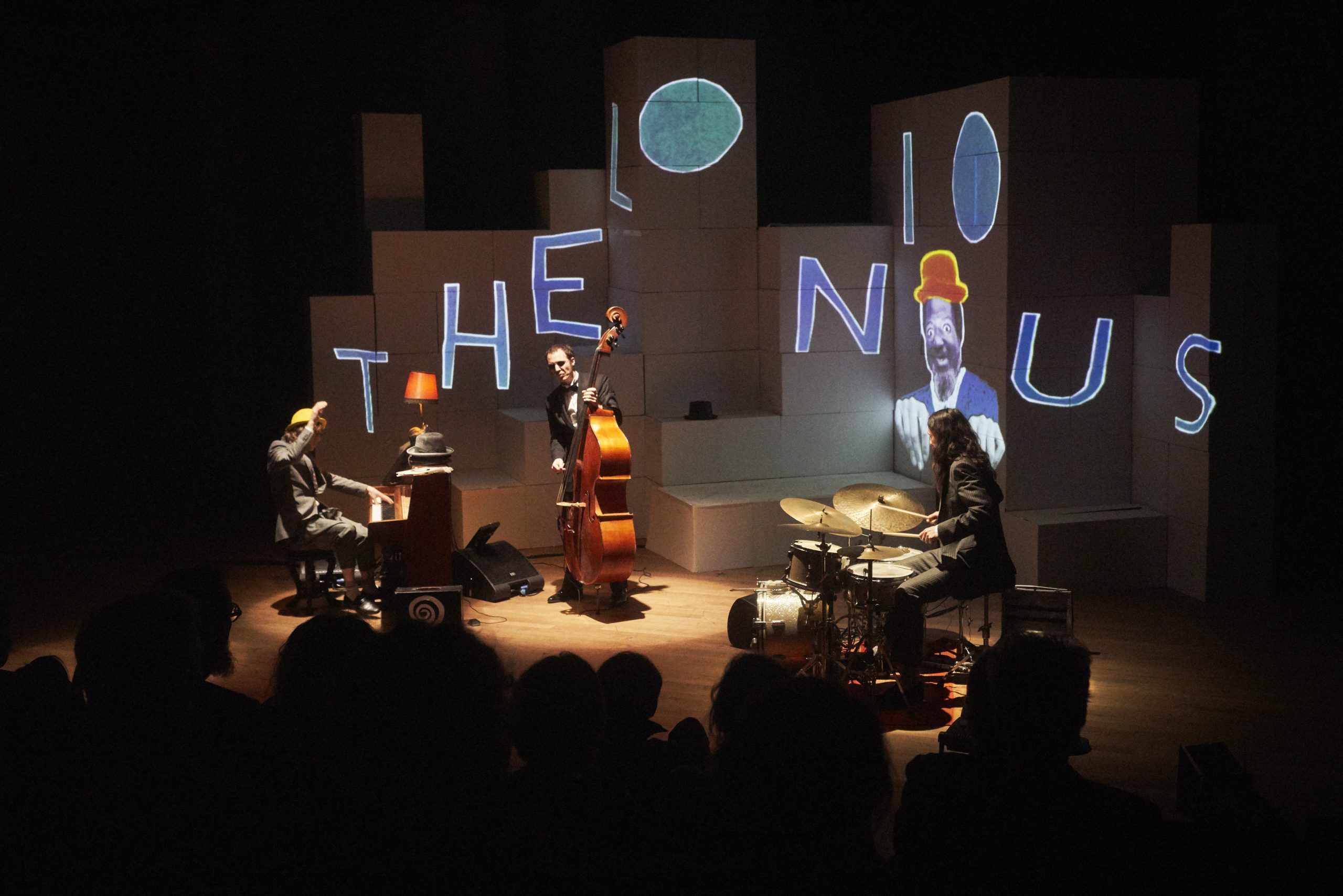
Torna il 16 ottobre anche Fabrizio Ottaviucci, per continuare a confrontarsi con unŌĆÖaltra pagina musicale del Novecento: un nuovo capitolo delle Treatise di Cornelius Cardew, tra i maggiori diffusori della musica dŌĆÖavanguardia europea e statunitense in Gran Bretagna. Interprete indiscusso della musica contemporanea, Ottaviucci eseguir├Ā anche lŌĆÖangelica Palais de Mari del compositore Morton Feldman. Un percorso musicale e performativo che sembra dialogare con lo spirito con il quale Barrie Kosky, tra i pi├╣ acclamati registi dŌĆÖopera viventi, ha deciso di affrontare il riallestimento dellŌĆÖOpera da Tre soldi con i Berliner Ensemble. ┬½La musica di Weill ├© fantastica: ├© esigente nella sua ricchezza di allusioni, nella sua sottile critica (vi si possono trovare numerosi colpi di scena ironici) e allo stesso tempo ├© sobria e lirica, amara e allegra, malinconica e aggressiva┬╗ ha affermato il regista. Se Brecht, partito dalla traduzione di Elisabeth Hauptmann della BeggarŌĆÖs Opera (LŌĆÖOpera del Mendicante) di John Gay, satira di successo del 1728 nei confronti del melodramma italiano, ambienta il suo capolavoro mondiale nei bassifondi londinesi di inizio Novecento per attaccare la societ├Ā capitalista borghese, Barrie Kosky si astrae dalla dimensione storica per rimettere al centro le celebri musiche firmate dal grande talento musicale di Kurt Weill, viatico per la dimensione pi├╣ emotiva dellŌĆÖopera. ┬½A mio parere abbiamo a che fare con un compositore che ha combinato 5000 anni di tradizione sonora ebraica con l’apice della musica sacra protestante tedesca e il jazz della citt├Ā moderna. Questo ├© stato possibile solo con Kurt Weill e ha significato una rottura assoluta con tutta la tradizione wagneriana, decisiva fino ad allora. Non c’├© nulla di mistico in Weill. E questa allŌĆÖepoca era una cosa nuova. La sua musica riguarda le persone, i loro sentimenti e i loro problemi┬╗ racconta ancora Kosky nel programma di sala. Su un palcoscenico spoglio, abitato da unŌĆÖimpalcatura gigante sulla quale si arrampicano e muovono gli attori, il regista costruisce una storia profondamente attuale di amore e di violenza, restituendo centralit├Ā a un protagonista fondamentale della storia della musica. UnŌĆÖoperazione resa possibile solo grazie alla presenza dei Berliner Ensemble – la compagnia fondata da Bertolt Brecht nel 1949 e che in oltre 70 anni di attivit├Ā ha scritto le pagine pi├╣ importanti della storia del teatro – assente dai palcoscenici italiani da quasi quarantŌĆÖanni.
In attesa di incontrarvi al Teatro Argentina, vi ricordiamo anche lŌĆÖultimo appuntamento con la sezione LineUp!, luned├¼ 10 ottobre a partire dalle ore 19 al Mattatoio con Eclissi Talk di Pietro Turano, e la tappa romana dellŌĆÖXXL tour di Elasi e vi invitiamo a scoprire e partecipare alle giornate d’autunno del FAI , il grande evento autunnale di piazza che il Fondo Ambiente Italiano dedica al patrimonio culturale e paesaggistico del nostro Paese sabato 15 e domenica 16 ottobre 2022.
A proposito: su Repubblica.it lo speciale di Gedi Visual (firmato da Sara Scarafia) dedicato alle sezioni del REF !
ENG
Autumn in Rome is as boiling hot as the recently ended summer.
RefŌĆÖs upcoming weekŌĆÖs weather is also heating up with the ŌĆ£leading cultural event of this autumnŌĆØ, as defined by Il Venerd├¼ ŌĆō La Repubblica. We are obviously talking about the arrival in the capital of the Berliner Ensemble, who along with the director Barrie Kosky, from the 11th to the 15th of October (rest on the 13th), will present at Teatro Argentina a new staging of Die Dreigroschenoper. But before entering the description of this enormous project – that saw our technical staff involved in an actual tour de force in the last few days – and to understand better the spirit of the show, letŌĆÖs move to the end of the week finding a constant dialogue with composers and music that marked and revolutionised the 20th century.
From the 14th to the 16th of October, the Mattatoio will rekindle with REF Kids & Families – the festivalŌĆÖs review dedicated to kids and their families (starting from age six) – and with the Flemish company Zonzo Compagnie ready to pay their homage to one of the most influential pianists of all times, Thelonious Monk. Thelonious is the title of their new production in which the musicians of the adventurous jazz trio De Beren Gieren takes us to New York in the 40s, through sounds, animations and videos to discover the universe of this legendary character, between surprising harmonies and exciting rhythms of his music. Coming back on October 16th Fabrizio Ottaviucci will continue to confront himself with another musical page of the 20th century: a new chapter of Treatise by Cornelius Cardew, who greatly spread avantgarde European and American music in Great Britain. An undisputed performer of contemporary music, Ottaviucci will execute also the angelic Palais de Mari by composer Morton Feldman.
A musical and performative journey that seems to dialogue with the spirit with which Barrie Kosky, one of the most acclaimed living opera directors, has decided to take on the new staging of Die Dreigroschenoper with the Berliner Ensemble. ┬½WeillŌĆÖs music is fantastic: itŌĆÖs demanding in its richness of allusions, in its subtle criticism (you can find many ironic plot twists in it) and at the same time it is both sober and lyrical, bitter and merry, malinconia and aggressive┬╗ the director has stated. If Brecht, starting from Elisabeth HauptmannŌĆÖs translation of BeggarŌĆÖs Opera by John Gay, a successful satire from 1728 about Italian melodrama, stages his worldwide masterpiece in LondonŌĆÖs slums at the beginning of the 20th century to attack the capitalist middle-class society, Barrie Kosky escapes from the historical dimension to place at the center the famous music signed by the great musical talent of Kurt Weill, serving the more emotional dimension of the opera. ┬½In my opinion, we are dealing with a composer who combined 5000 years of tradition of jewish sounds with a climax in sacred Protestant German music and modern cityŌĆÖs jazz. This is only possible with Kurt Weill and has meant an absolute fracture with all the Wagnerian tradition, so decisive until that moment. There is nothing mystical in Weill. And that was new then. His music is about people, their feeling and their problems┬╗ Tells us Kosky in the theatre programme. On a bare stage, inhabited by an enormous scaffolding on which the actors climb and move, the director builds a profoundly present story about love and violence, giving back the focus to the fundamental character of the history of music. An operation only made possible by the presenza of the Berliner Ensemble – the company founded by Bertolt Brecht in 1949 and that in 70 years of activity has written the most important pages of the history of theatre – absent from the italian stages for almost forty years.
While waiting to meet you at Teatro Argentina, we remind you that the last appointment with the review LineUp!, will be monda October 10th from 7pm at the Mattatoio with Eclissi Talk by Pietro Turano, and the roman stop-over of the XXL tour of Elasi.


